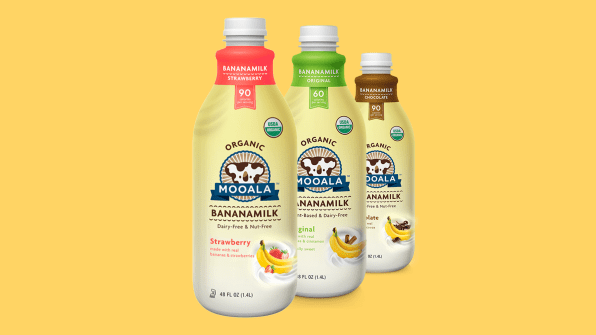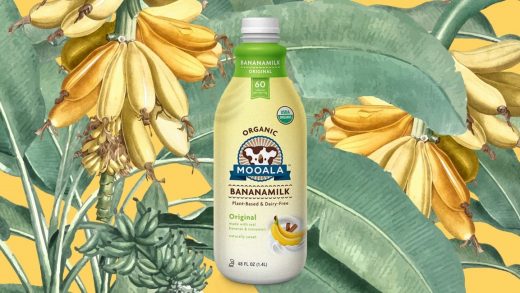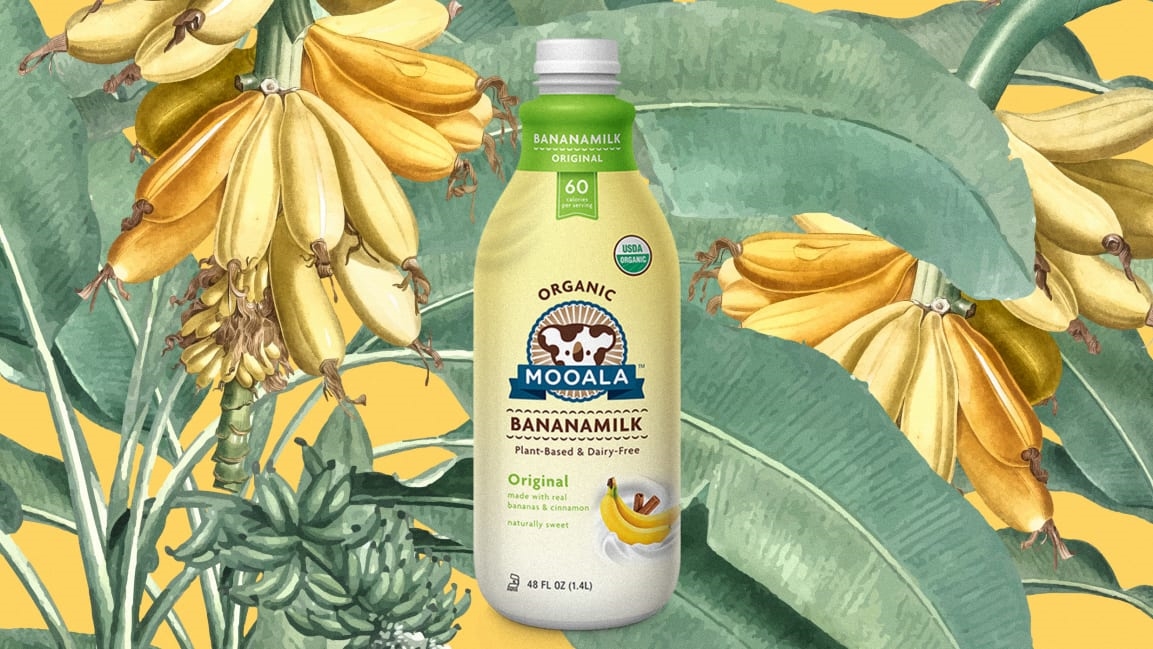Even bananas are getting milked in the race for alt-dairy products
First there was cow’s milk. Then soy milk, nut milk, pea milk, and oat milk—and the dairy industry’s war over alternatives even using the term “milk” to begin with. Depending on your worldview, all of these might have some ethical, environmental, dietary, or pricing drawbacks. So in 2012, a lactose-intolerant investment banker with a nut allergy began tinkering with a new ingredient altogether.
The result is plant-based, ethically sourced, allergen-free, organic, and relatively affordable beverage called “Bananamilk.” It retails for between $4.99 and $5.99 for 48 ounces or a little more than one-third of a gallon. Last year, Mooala, whose line of banana milk includes original, strawberry, and chocolate flavors, posted nearly 900% year-over-year sales growth, the fastest among newcomers to the alt-milk category. It’s now sold in 2,000 stores including Whole Foods, Safeway, Kroger, Wegmans, and Costco, and expected to increase its footprint to 3,000 by the end of the year.
It’s also reformulating to be even more healthful, with a new recipe that will play up boosted potassium and calcium levels for people who like the good parts of milk but for some reason can’t stomach it. “If you mix water and bananas, it doesn’t matter how you do it, it’s going to taste like watered-down banana puree,” says company founder and CEO Jeff Richards. “Through our batching and cooking process, we’re bringing out this really rich, creamy flavor that everybody just loves.”
Most Americans like bananas. They’re inexpensive to grow and travel well, making them the top-selling (and cheapest per pound) fruit in the grocery store. Richards realized that makes them an inexpensive ingredient for drinks, especially if you’re seeking organic certification, something many conventional and alternative milks still lack.

Being USDA-certified organic only regulates agricultural practices—it is not an indication that workers are treated fairly. Moola sources its bananas from South America and says it does third-party audits to make sure their supply chain respects workers and pays them fairly.
Richards began mixing test batches in his own kitchen in 2012. Once he found a recipe he liked, he took it to the University of Minnesota to get help refining it for industrial production. The final recipe includes bananas, water, sunflower seed butter, cinnamon, and sea salt. “I think a lot of people would assume that banana is going to taste like the candy Runt flavor,” he says. “That one, at least in my experience, was always the one that was left at the bottom of the bag.” Mooala’s core flavor tastes more like banana nut bread, although the nuttiness comes from that nut-free sunflower seed butter.
Compared to traditional milks, Mooala is lower in calories, cholesterol, sodium, carbs, and sugar. While whole milk has about 150 calories and 12 grams of sugar per serving, Moola has 60 calories and 3 grams of sugar that come from the bananas, so there’s no sugar added. But most milk is also protein rich, and high in calcium and potassium. Mooala’s formulation falls short on all three of those with just 1 gram of protein, no calcium, and only 3% of your recommended daily value of potassium.
To get more competitive, the company plans to fortify its drink. When released later this year, the final version will have 30% calcium and 10% potassium versus conventional milks roughly 20% and 10% allotment. That’s required tweaking the recipe just a bit: Potassium, for instance, has a salty taste, so it will replace sea salt.
While Mooala does have some almond-based products, including a just-released banana and almond creamer, Richards considers the primarily banana-based beverage his star performer. “It mixes really well in coffee, believe it or not, and obviously smoothies, cereal, baking,” he says. “There’s nothing else in the market like it. It’s hard to do banana. We’ve found something that works and has been our most popular product.”
(47)



